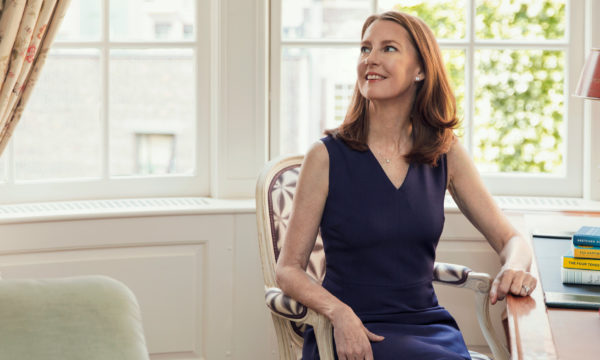What Happy People Do Differently
March 19, 2015

When asked what they want out of life, many people will automatically answer: “I want to be happy.” It seems like a diplomatic enough response. Admitting that what you really want is money, power, or status is a quick way to be labeled as materialistic, ruthless, or superficial. But citing the pursuit of happiness as your goal is a safe way to appear relatable, human, and even American (it’s in the Declaration of Independence, after all). But is happiness a worthwhile goal, or is the expectation that we’re supposed to “achieve” it actually making us less happy?
Our cultural fascination with happiness—how to secure it, sustain it, sell it, obtain it—seems to increase with each passing year. Much of the literature seems overly clinical (increase your dopamine levels) or overly simplistic (“Take a bubble bath!”), but when I read Psychology Today’s recent article, “What Happy People Do Differently,” I felt for the first time: These people are onto something.

Image via Cupcakes & Cashmere
The research cited in the article pointed to a number of behaviors and attitudes that define generally happy people (they’re curious and willing to take risks that lead to personal growth, they have the ability to be genuinely happy for others’ successes), but for me, there was one quality that stood out: happy people don’t hide from negative emotions. They don’t waste time trying to suppress sadness while actively chasing happiness; rather, they recognize every emotion as an important part of a balanced life.
In other words, periods of “unhappiness” should not to be lamented or seen as moments of failure. Feeling unhappy is not an indication that something is wrong. Down periods are essential parts of our life-rhythm, and they give meaning to those phases when we are, in fact, feeling happy. But happiness is not the be-all and end-all. Rather, as the article points out, “the good life is best construed as a matrix that includes happiness, occasional sadness, a sense of purpose, playfulness, and psychological flexibility, as well as autonomy, mastery, and belonging.”

So despite what we’ve been told, the “pursuit of happiness” might just be an exercise in futility. After all, our individual requirements for happiness are always changing. During one phase, we might crave extreme freedom and thrive on spontaneity, while during another, we might relish the security that comes from commitment and a sense of routine.
Australian researcher and novelist Hugh Mackay sums it up pretty well:
I actually attack the concept of happiness… the idea that everything we do is part of the pursuit of happiness seems to me a really dangerous idea and has led to a contemporary disease in Western society, which is fear of sadness. It’s a really odd thing that we’re now seeing people saying, ‘Write down three things that made you happy today before you go to sleep,’ and ‘Cheer up’ and ‘Happiness is our birthright’ and so on. We’re kind of teaching our kids that happiness is the default position—it’s rubbish. Wholeness is what we ought to be striving for, and part of that is sadness, disappointment, frustration, failure—all of those things which make us who we are. Happiness and victory and fulfillment are nice little things that also happen to us, but they don’t teach us much. Everyone says we grow through pain, and then as soon as they experience pain they say ‘Quick! Move on! Cheer up!’ I’d like just for a year to have a moratorium on the word ‘happiness’ and to replace it with the word ‘wholeness.’ Ask yourself, ‘Is this contributing to my wholeness?’ and if you’re having a bad day, it is.
So rather than taking deliberate measures to ensnare joy, perhaps a more accepting approach is in order. When it comes to happiness: Appreciate it when it’s there, exercise patience and self-compassion when it’s not, and above all, be confident that it will consistently sneak up on you throughout your life.







